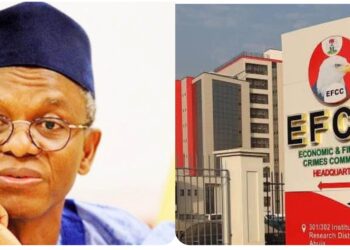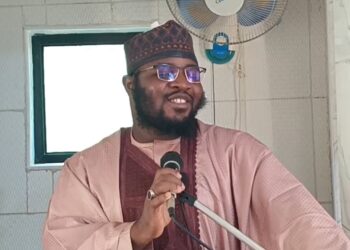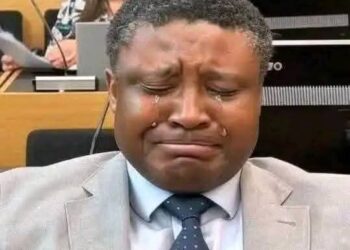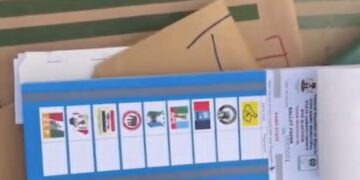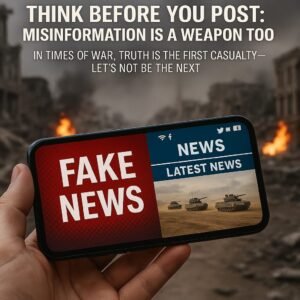
EDITORIAL | THE MERIT NEWSPAPER
In a world already grappling with the effects of economic inequality, climate change, and humanitarian crises, the escalating conflict between Iran and Israel presents yet another test to global peace and security. What began as regional tension has now attracted the attention—and military involvement—of global powers, notably the United States. This intervention, particularly the reported airstrikes on Iranian missile facilities, has sparked worldwide debate, anxiety, and a flurry of speculation across traditional and social media platforms.
Yet, in the age of instant information, the war is no longer just fought on battlefields. It is also being waged in the media—especially on social media, where misinformation spreads faster than missiles.
As an editorial board committed to truth and responsible journalism, The Merit Newspaper expresses deep concern over the unverified and often misleading narratives being widely shared online. In recent days, countless reports have surfaced—some favouring Iran, others staunchly defending Israel—none offering solid verification, and many crafted to inflame public sentiment rather than inform it.
READ ALSO:2027: Atiku, Obi, El-Rufai Launch New Party to Dethrone APC
While the Iranian government maintains that its military infrastructure remains intact despite the attacks, Israeli media emphasizes the threat posed by Iran’s nuclear ambitions. The United States, meanwhile, defends its involvement as a preventive measure to forestall regional escalation. In this fog of war, truth becomes a casualty when propaganda and fake news dominate the conversation.
We are particularly disturbed by the role some Africans, including Nigerians, are playing in sharing inflammatory and unverifiable information online. This not only misleads the public but also risks dragging our local communities into distant conflicts that do not directly involve us. False information can stir religious and political tensions, strain diplomatic relations, and sow unnecessary panic among citizens already burdened by socio-economic challenges.
READ ALSO:Tinubu Honors Mother’s Legacy with Memorial Prayers in Abuja
In times like these, what should the public—especially in Nigeria and Africa—do?
Rely on Verified Sources: We urge the public to follow reputable international media outlets such as BBC, Reuters, Al Jazeera, CNN, and Associated Press. For regional updates, consult the official channels of Iranian state-run media like IRNA and PressTV, or the Israeli Ministry of Foreign Affairs.
Avoid Amplifying Fake News: If a post or video cannot be verified, do not share it. Social media may offer immediacy, but it lacks the editorial responsibility of professional newsrooms. What may appear to be “breaking news” is often edited footage or recycled propaganda.
Understand the Complexity: The Iran-Israel conflict is not new. It is rooted in decades of geopolitical rivalry, ideological opposition, and competing interests in the Middle East. Involving oneself without context invites bias and confusion. Let us not contribute to the problem with half-baked opinions based on WhatsApp forwards or Twitter threads.
Promote Peace, Not Panic: Instead of stoking fear or taking sides, use your voice to advocate for de-escalation, humanitarian support, and diplomatic resolution. Africa’s role in global affairs should be one of constructive engagement, not virtual agitation.
Trust Professional Journalism: In moments of international crisis, the work of verified journalists becomes crucial. We pledge, at The Merit Newspaper, to continue delivering fact-checked and responsible coverage on this issue and others. Our commitment is to truth, not trend.
The world is interconnected more than ever. What happens in Tehran or Tel Aviv can resonate in Lagos, Nairobi, or Accra—not because of direct conflict, but because of the ripple effects of global tension. Let us not add fuel to the fire by becoming unwitting agents of misinformation.
READ ALSO:Ambassador Ajadi Pays Homage to Head of His Father’s Lineage, CCII President-General Chief Bode Amoo
As the conflict unfolds, we call on world leaders, regional actors, and peacebuilding institutions to intensify diplomatic efforts and prevent further bloodshed. But closer to home, we call on every social media user to pause, think, verify—and above all—choose peace over propaganda.
Editorial Board
The Merit Newspaper



